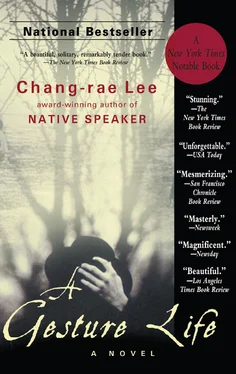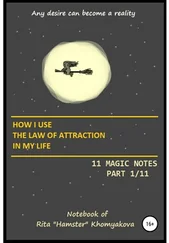“I was sure Dolly didn’t see me,” I tell her. “It looked like she was the one who was getting all the sleep.”
“That’s her job,” Veronica says, and then adds, in a dramatic, mischievous tone: “She’s the nurse of the night.”
“Very true,” I reply, wishing, all of a sudden, that I could change out of my hospital gown and accompany Veronica on her rounds. I say, “It appears she is also the nurse of jelly doughnuts. And perhaps of pastry and pie.”
“Yes,” Veronica cries, almost gleeful with the gossip. “I thought I saw cherry filling on her shoes. I didn’t say anything, but I was half afraid it was blood!”
“How do we know it wasn’t?” I say, knowing what it takes to goad her. “That she’d simply forgotten to hide a crime?”
“Yes, yes,” Veronica cries, half-covering her mouth. “She raids the blood closet in the middle of the night. She’s a ghoul, a vampiress. She needs it to live, but only the blood of young boys and girls, which she can smell through the packets.”
“I hope this means I’m safe.”
“No one is safe,” Veronica states, almost seriously enough to alarm me. “But you, Franklin, you are. Even though you’re young at heart.”
“You think I am? Young, I mean.”
“Definitely,” she tells me, her voice buoyant again, the verve of fourteen. “But in a good way. Not like the boys at school, who are all incredibly lame and stupid. You’re young like things are always beginning. Which I think is great.”
“I always thought people your age think being grown up is most fashionable.”
“Not me, I guess,” Veronica says, handing me a stack of magazines, a book of word games, and an old jigsaw-puzzle box of the Mona Lisa, whose famous mien, I am beginning to think, is the expression of a young woman concealing a pure feeling of joy. “I don’t want to grow up yet. It’s too much trouble. And I don’t care if I’m not cool. I can wait.”
And so this we do, together, in my private room. I’m lucky, for since cable television finally arrived at the hospital, the patients are reading far less, and as they don’t require that the candy stripers come around to them as often with material, I have Veronica’s company for pretty much as long as I (and she) wish. She lives in the town of Ebbington, just east of Bedley Run on the far side of a large county reservoir, beside which the two villages are situated. Though Ebbington is not at all the sort of place Bedley Run is; mostly it’s a working-class suburb of drab, unadorned homes and small motel-style apartment complexes. When you drive through town you notice how the trees hang a bit too closely over the streets, how the bushes and grasses are keenly in need of pruning and edging and clipping, how the main thoroughfare is rife with chain businesses and towering signs that glow and rotate and blink. In the older, quieter part of town, there are what seems a disproportionately high number of auto repair garages and beauty salons and churches and bars, all half-failed and dilapidating in their own fashion, and one’s perception is that whatever uniqueness and charms Ebbington once had are being inexorably absorbed by larger, external presences both unknown and invited.
Veronica’s mother is a Bedley Run police officer, whom I’ve come to know casually in the course of being a village merchant; her father, who used to be an officer himself (and the police chief of Ebbington, in fact), lost his life in a somewhat notorious local incident in which he was caught in a crossfire between his own officers and a group of out-of-town gamblers and loan sharks with whom he was enjoying the evening. I remember in the newspaper articles the mention of his wife and infant daughter, who was Veronica, and the question of whether they would receive his pension benefit, given the unusual circumstances of his death. They did not, and I was one of the few who took an interest in their welfare and wrote and called in support of Veronica’s mother when word got out that she had applied for the officer’s position in Bedley Run (our town’s Chief Hearns being a longtime acquaintance of mine). After she got the job, Officer Como would often double-park her cruiser right in front of Sunny Medical while she got her lunch down the street at the deli or around the corner for takeout chicken, as if she was letting everyone know that she would be extra vigilant over my store, which mostly meant warning off the petty vandals. We rarely exchanged more than a few words, always simply a wave and a greeting, and it wasn’t until Veronica mentioned yesterday what her mother did for a living that I put together who they were.
It particularly heartens me, in light of this, to see how well Veronica has grown up. As we read quietly together here in this sterile, unpapered gray room, me with a gardening magazine and Veronica a pocket murder mystery with gruesome, drippy, raised lettering on its tattered cover, I have to wonder what might have come of her had just one thing turned differently then — say, had her father survived the shooting, or her mother not found a job.
So much of the public debate and discussion these days is about the alarming fragility of a person’s early years, how critically the times and circumstances can affect one’s character and outlook and even actions. So the abiding philosophy is to help a wayward child develop into a productive member of the community, or if ignored, risk allowing someone of essentially decent nature to become an adult whose social interactions are fraught and difficult, or even pathological, criminal. How did Veronica, from the start fatherless, her family stigmatized, grow into her own fine self? What did her mother, Officer Como, do to enlist the native grace and good in her daughter’s heart? Or did it all happen by ordination, by the slight chance of Being, that Veronica and the rest of us have actually one strain of life, and one strain only, and that the seeming variations are but particular contours, the everyday adornments?
Such as, I’m considering now, my being here in the hospital, suffering complications in the aftermath of the smoke inhalation. The fire in the family room was two days ago, and Liv Crawford has called more than a few times to let me know that “her boys” are just about finished with the renovations of the damage, so that the property will be fully “restored” and “secure.” No doubt pristine and purchaser-ready. But then there is my situation. Dr. Weil is sure that I’m recovered, but from what I know and feel, I’m almost certain that I’m pleuritic, as my lungs don’t seem to be improving the way they should. My chest still feels leaden and straitjacketed and generally out of sorts. I’m breathing well enough, but even the light activity of talking with Veronica (as well as my stolen wanderings last night in the corridors) seems to be taking a deep toll on my energy. And then there is the other, unrelated complication that has arisen, one far worse in my mind (and spirit-sapping), which is that I suddenly have an onset of the shingles. There is an almost caustic discomfort in my lower chest and then down my right arm and right leg, what feels like lines of internal burns that sharply prickle and itch and ache. There is no expression as yet, no outward sign of rashes or blisters, which I wouldn’t be concerned about either way, except that I wouldn’t want Veronica to see them and think it was better to leave me alone, to let me rest.
For being alone is the last thing I would wish for now, which is probably strange, given how I’ve conducted most all the days of my life. Save the time that Sunny spent with me, I’ve known myself best as a solitary person, and although I’ve always been able to enjoy the company of others, I’ve seen myself most clearly when I’m off on my own, without others in the mix. This may seem an obvious mode for most, but I think a surprising number of people prefer to imagine themselves through a filter of associations and links, perhaps Mary Burns being an example of a person who predominantly identified herself in this manner, through the lives of her daughters and her late husband, her country club and her charities, and then, possibly, through her attempted relations with Sunny, and with me. There is nothing inherently wrong with this. Indeed, there was a time when I held my own associations quite close to who I was, in the years leading up to and during the Pacific war, when in the course of events one naturally accepted the wartime culture of shared sacrifice and military codes of conduct. But then I eventually relinquished those ties for the relative freedoms of everyday, civilian life, and then finally decided to leave Japan altogether, for the relative — though very different — liberties of America.
Читать дальше











![William Frith - John Leech, His Life and Work. Vol. 1 [of 2]](/books/747171/william-frith-john-leech-his-life-and-work-vol-thumb.webp)
![William Frith - John Leech, His Life and Work, Vol. 2 [of 2]](/books/748201/william-frith-john-leech-his-life-and-work-vol-thumb.webp)